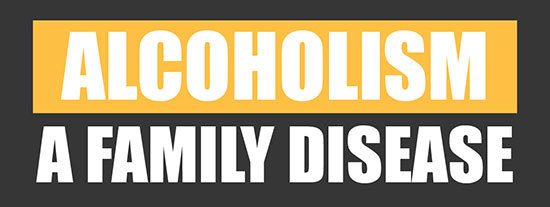
ALCOHOLISM: A FAMILY DISEASE
Alcoholism is a disease that affects millions of people in the United States. Unfortunately, this affects more than just the person afflicted with the disease of alcoholism. It also directly influences the people closest to them, such as their family.
The statistics are shocking when it comes to how alcoholism can influence the entire family. Not only are children of alcoholics more likely to become alcoholics themselves, they’re also more likely to experience negative emotions. These emotions can include feelings of depression, helplessness, and low self-esteem.
76 Million Americans
One striking point is the sheer number of Americans exposed to alcoholism within their families. A staggering 76 million Americans have faced this challenge. This isn’t a solitary battle—it’s a collective one that requires understanding, empathy, and shared efforts for recovery.
Furthermore, the vastness of this figure—76 million—paints a vivid picture of the societal magnitude of this issue. It’s equivalent to nearly a quarter of the entire US population, making it imperative for communities, institutions, and policymakers to sit up and take notice. This isn’t just a statistic—it represents individual stories, struggles, and silenced cries for help.
Behind each number lies a person grappling with the complexities of family dynamics altered by alcohol abuse, the hardships of daily life punctuated by moments of despair, and the yearning for normalcy.
The shared narrative of these millions underscores the urgent need for comprehensive support systems, public awareness campaigns, and targeted interventions to alleviate the multi-generational impact of alcoholism on families.
Impact on Children
Young children, in particular, bear the brunt of the emotional turmoil. The fears of abandonment, chronic depression, and guilt can shape their worldview, impacting their relationships, choices, and overall well being. Adolescents, on the other hand, manifest their distress in unique ways, from obsessive perfectionism to tendencies like hoarding.
The repercussions of growing up in an environment tainted by alcoholism are profound, particularly for children. Research indicates that children of alcoholics have a risk that is quadrupled, making them four times more prone to developing alcoholism in their later years.
The patterns of binge drinking observed in parents often echo in their offspring, with children mirroring such detrimental behaviors. The emotional landscape for these young souls is often marred with challenges. Younger children grapple with feelings of:
- Low self-esteem
- Loneliness
- Guilt
- Feelings of helplessness
- Fears of abandonment
- Chronic depression
Older children of alcoholics may show depressive symptoms like:
- Obsessive perfectionism
- Hoarding
- Staying by themselves
- Feelings of excessive self-conscious
Moreover, the influence of parents on their children’s decision regarding alcohol cannot be overstated. It’s alarming yet not surprising that 74% of young individuals between the ages of 8-17 consider their parents as the primary influence on their alcohol consumption choices.
Relatives Struggling With a Drinking Problem
The pervasive grip of alcoholism on American society is underscored by a startling statistic: over half, specifically 53%, of adults in the US, have disclosed that at least one of their close relatives struggles with a drinking problem. This data not only highlights the widespread nature of alcohol-related issues but also underscores the silent battles many families are fighting behind closed doors.
For many, this means contending with the ripple effects of a loved one’s addiction to alcohol, from emotional strain and financial difficulties to potential breakdowns in family member dynamics. This figure serves as a stark reminder of the collective responsibility society holds in addressing, understanding, and offering support for alcohol use disorder and its broader impact on families.
Alcoholism and Recovery
Because alcoholism makes such a negative impact on the entire family, it’s important to include them in the recovery process. A family support group can give everyone influenced by alcoholism a place to heal.
The infographic below provides a visual representation of these jarring facts, painting a comprehensive picture of the far-reaching effects of alcoholism. Understanding this is the first step in recognizing alcoholism as a family disease and taking concerted steps towards holistic healing during alcohol addiction treatment.
Reach out to Yellowstone Recovery at (888) 418-4188 today if you or a loved one is struggling with alcoholism and are ready to stop drinking.









